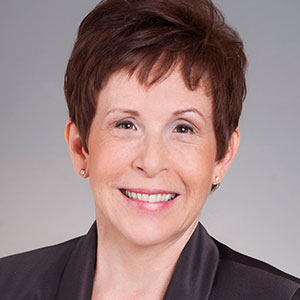“I love to sell!”
That’s what Connie Kadansky shared with over 800 webinar attendees in a session of ICF’s 2020 Business Development series that I’m currently enrolled in.
Kadansky also said, “Many coaches are not comfortable monetizing their expertise. But the world needs you, so you need to lose your narrative that selling is bad!”
When I heard Kadansky say that, I gasped because she nailed me right between the eyes with that truth.
I’ve never been comfortable with “selling” because I’ve been turned off by pushy salespeople. I don’t want to be seen as a Harry Wormwood from Maltilda!
As a former pastor, I’m used to giving away my services for free because I tell myself, “That’s what unselfish ministers do.”
But if I’m really honest with myself, I have to admit that I’m not comfortable with selling because I fear rejection.
My dislike of selling is really about my negative mindset and how my fears are preventing me from serving more people as a coach.
However, in her presentation, Kadansky gives a five-question process to ask a prospective client. This process helped change my mindset and fears about selling.
Question 1: “What is your desired situation?”
When asked this question, many will talk about their current situation. That’s OK. Ask permission to take notes so you can capture their words, images, and ideas.
Be curious and ask follow-up questions that explore ever-deepening levels — starting from superficial details, to facts, opinions, insights, and finally to meaning.
For example, if a prospective client wants to become a better leader, you can ask, “What difference does it make for you to develop your leadership skills?” Or “What would it mean for you to become a great leader?”
Resist at all costs to jump in and sell your coaching products to develop their leadership skills!
Instead, stay curious and seek to learn what the prospective client is really seeking.
Question 2: “What has limited you from achieving this?”
When you understand your prospect’s desired situation, ask them: “What has limited you from achieving this?”
Stick to these seven words, and then ask follow-up questions to encourage your prospect to explore deeper into details, facts, opinions, insights, and meaning.
One MCC level question to ask during this step is “What else?”
Question 3 – “What is at stake if nothing changes?”
The question: “What is at stake if nothing changes?” taps into the prospect’s emotions — their anxieties, fears, and worries — which help clarify the tension, challenges, and the true cost of staying stuck.
When a prospect gives you an emotional response, it gets to the true essence of what really matters. Naming that emotional essence will play a big role in helping you close a sale.
People buy with their emotions. They justify their purchase with their logic.
As a coach, have the courage to ask questions that tap into emotions. Then courageously open your heart and be empathetic to what they may be feeling. It’s possible that they may tell you things that they haven’t said out loud before. That new insight brings value to the prospect!
Question 4 – “What is your sense of urgency?”
At this point, you’ll be tempted to coach around that insight. Don’t do it!
Ask this question instead, “What’s your sense of urgency?”
Some prospects can act based on their urgency. They have the authority and money to buy from you right away.
Other prospects may not be the decision-maker in purchasing coaching. Some may have other more urgent commitments than buying coaching. If that’s the case, honor that and schedule a follow-up conversation.
Question 5 – “What is the next step?”
At this point, most salespeople will start telling a prospective client the next steps.
Instead, you ask, “What is the next step?”
Let them tell you what the next steps are.
If they answer, “Oh, I don’t know what my next steps are.”
You can ask, “From our conversation today, what did you hear yourself say that you’ve never said before?”
If they ask, “How much is coaching?” Tell them about your packages and how they can financially invest in them.
Answer any questions or concerns they might have. That only builds a foundation of trust and intimacy in your relationship with the prospect.
Chances are, you’ll land a new client at this point.
The sale before the sale
Even if you don’t land a client, you’ve successfully “sold” yourself as a trustworthy, empathetic, and curious coach who is genuinely interested in the prospect’s success and well-being.
You’ve given value to your prospect by your thoughtful and helpful questions.
You’ve given the prospect a taste of what it’s like to work with you … curious, respectful, relaxed, and always prioritizing the prospect’s agenda.
And you’ve kept the door open for future “sales” conversations that are less about a possible transaction and more about a potential transformation.
That’s the kind of selling that I can buy into!
If this article has been useful to you, please consider signing up for my periodic e-newsletter.
This article is based on the session “Monetize Your Coaching Expertise: A step-by-step process for your sales conversation” led by Connie Kadansky on March 5, 2020, and recorded for the International Coaching Federation‘s Business Development Series. This series teaches coaches how to build their brand, tools, business, and platform with webinars and on-demand content released throughout 2020. You can still register for the BDS 2020 OnDemand here.

Connie Kadansky, MCC, is a noted authority on call reluctance and sales productivity. She has worked with powerhouse organizations including Fortune 50 corporations, universities, multi-national organizations, and national non-profits & associations. Visit her website: www.exceptionalsales.com.

[…] part of the BDS Series, read my post on Connie Kadansky’s presentation on monetizing your coaching […]